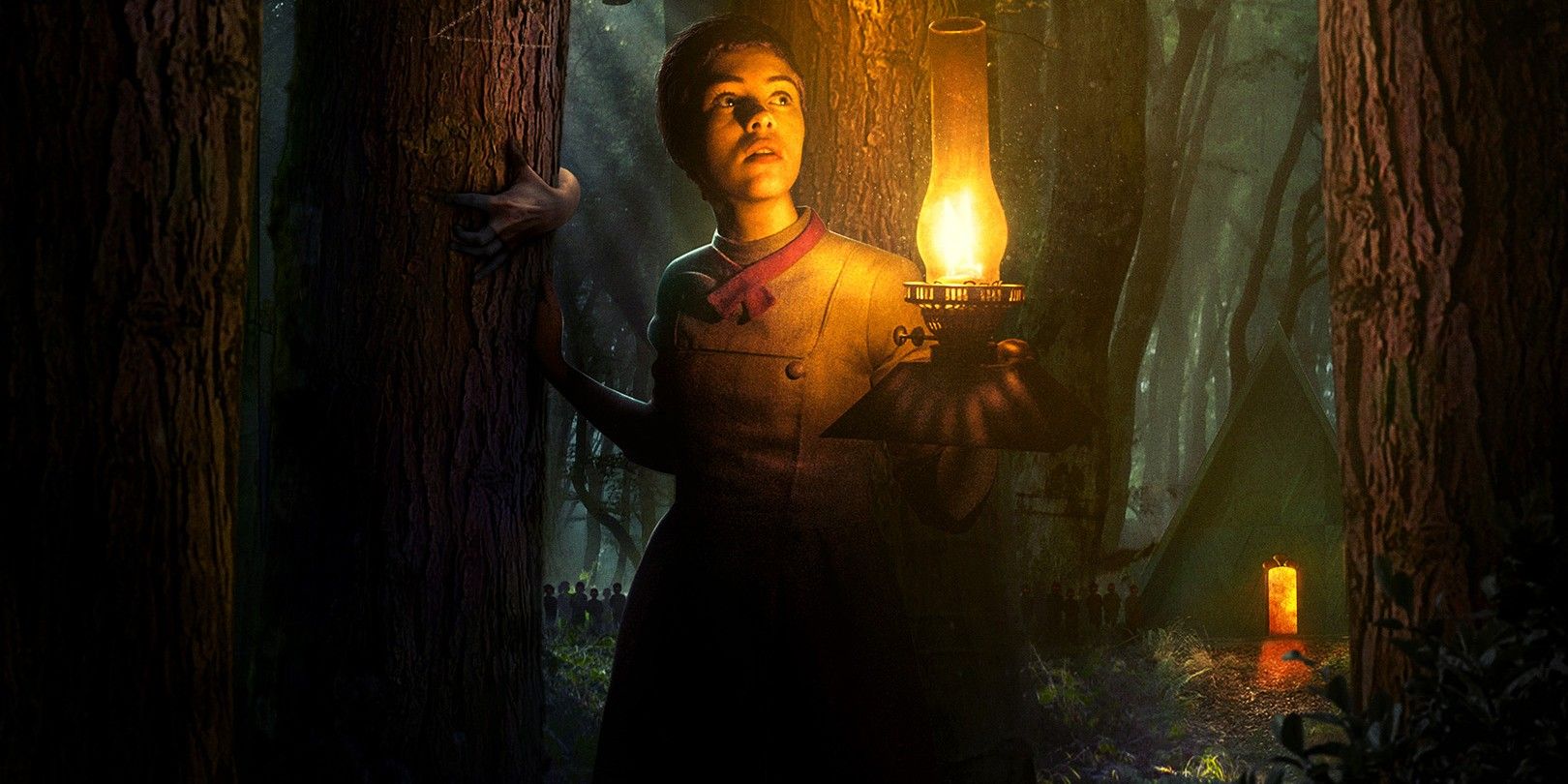It’s near-impossible to surprise your audience when you’re re-imagining a Brothers Grimm fairy tale. Thanks to Disney, a good chunk of the duo’s collected folk stories have been heavily sanitized and seared into the public’s consciousness over the past century. Other studios have tried to put their stamp on these fables by re-fashioning them as gritty live-action blockbusters over the last decade, but so far nobody’s actually succeeded in doing so. Gretel & Hansel has the advantage of not having a Disney animated feature to be compared to, and smartly reworks Hansel and Gretel into something closer to Robert Eggers’ The Witch than an action movie. But even with its rich sense of style and intriguing coming of age twist, Gretel & Hansel‘s revisionist approach is too half-baked to totally work.
In this version of the story, Gretel (IT‘s Sophia Lillis) is a sixteen year old girl struggling to survive with her eight year old brother Hansel (Sam Leakey) in a distant countryside plagued by famine. Cast out by their mother after Gretel refuses to work as a housekeeper for a wealthy lord who clearly has unsavory intentions for her, Gretel and Hansel are aided by a noble hunter (Charles Babalola), who advises them to seek work as wood-cutters in the forest. However, along the course of their journey, the pair stumble upon a house deep in the woods and the old woman (Alice Krige) who lives there. And though she offers them plentiful food and shelter in exchange for their help around her home, Gretel is quick to realize there’s something off about their mysterious host.
Although it has the makings of a typical gritty Hollywood revisionist fairy tale (there’s no house made of candy and Gretel even complains about fairy tales with princes in a particularly ham-fisted moment), Gretel & Hansel starts off heading in a much more interesting direction by focusing on Gretel’s journey into adulthood instead. The story by writer Rob Hayes (New Gods) is told largely through her perspective; in this version, Gretel is essentially forced to become Hansel’s mother at an age when she’s beginning to realize just how burdened women are in her world and finds herself yearning for freedom. Conveniently, who should come along but the witch, a character who recognizes the power (literal power – this is a fairy tale, after all) growing within Gretel and tempts her to embrace the darkness instead of the light.
Both Lillis and Krige are compelling in their roles, with Lillis’ quieter and more introspective performance matched by the latter’s coiled turn as the movie’s bloodthirsty, yet strangely charismatic, antagonist. Behind the camera, director Osgood Perkins (the son of Psycho actor Anthony Perkins) carefully ratchets up the dread and tension through their interactions in a slow-burn fashion, much in the same way he did in his previous two films, The Blackcoat’s Daughter and I Am the Pretty Thing That Lives in the House. He also messes with the aspect ratio – Gretel & Hansel is presented in 1.55 : 1, as opposed to the modern standard of 2.39 : 1 – and fills Galo Olivares’ gorgeously deep-focus, desaturated cinematography with splashes of bold colors, creating a fantastical setting that feels truly removed from the real world.
The thing that holds Gretel & Hansel back is, simply, it can only stray so far from the source material before it has to tell the same old story. It’s a pretty short film (just shy of 90 minutes), yet for all its creepy atmosphere, its pacing is sluggish and the movie struggles to pad things out (there are no less than three extended sequences where Gretel has a dark vision/dream) before getting to the “twist” everyone knows is coming. The resulting climax is oddly rushed and, well, anticlimactic, which prevents Gretel & Hansel from paying off Gretel’s coming of age thread in a satisfying manner and only makes the film’s brand-new ingredients (like the witch’s backstory or, believe it or not, a scene where Gretel and Hansel get high on mushrooms) feel all the more like filler.
As interesting as Gretel & Hansel sounds on paper when you break down what it’s trying to do, the actual movie is a bit of a darkly beautiful bore. There are a handful of freaky moments and some captivating acting by its female leads, yet it falls short of re-imagining the original Grimm fairy tale as a fully engaging coming of age horror-fantasy parable. In fairness, Gretel & Hansel may have something to offer under-age moviegoers who are less familiar with the Hansel and Gretel story and too young for an R-rated horror film that covers similar themes like The Witch (assuming they don’t find it too intense and/or dull). For everyone else, this will probably only be a partial improvement from the other misbegotten fairy tale remakes that’ve made their way to theaters in recent years.
Gretel & Hansel is now playing in U.S. theaters. It is 87 minutes long and is rated PG-13 for disturbing images/thematic content, and brief drug material.
- Gretel and Hansel (2020) release date: Jan 31, 2020
